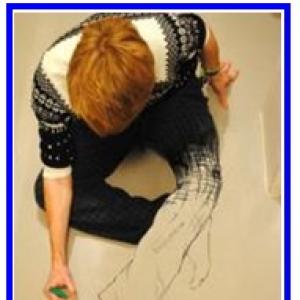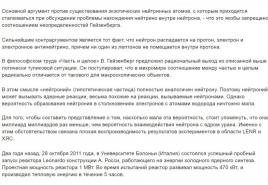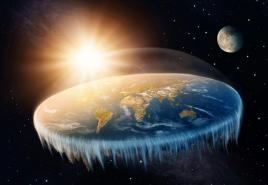The night blue was decorated with a silvery orange. Lesson flow Organizational moment
"The Past" - Not an easy journey. Science assistants. But the finds must be made to speak. Look into the excavation site .. Then archaeologists, numismatists, ethnographers come to the rescue…. Our ancient capital. How many interesting and useful things we learn by going through antiques! Our distant past. Continue answering questions.
Science Day - Individual study projects. Electronic didactic manuals. Literature The world around Extracurricular activities Only 25 projects! Network games and Olympiads. City subject Olympiads. Technology Chemistry Physics Sociology. Biology. elementary School... Special thanks to the teachers! Chemistry. Collective educational projects:
“How a person learns the world” - Judgments, inferences Formulates questions, conclusions, theories. Art. Why? Know yourself. I am real. The science. Map out the comparison lines in the comparison chart. Knowing yourself is not easy. Heightened self-esteem. How does a person know about himself? -From other people -Self-esteem. What for? I am perfect (Nice to see myself).
"Sensual cognition of the surrounding world" - Each object has not one, but many properties. For example, we smell a flower, taste a berry, warmth or cold. The possibilities of sensory cognition are limited. Individual properties objects of the surrounding world evoke sensations in us. Sensual knowledge of the surrounding world. For example: Yellow, oval, sour, juicy, aromatic - Green, prickly, smells like resin -.
“Man and the World” - What does the beauty of the surrounding world mean to you? “Beauty lives everywhere” - Yuri Antonov. Reading the text: "The Art of Seeing the World" Konstantin Paustovsky. Why is everyone in the world not alone? Conversation: Why is the ability to see the world of art? The circle of joy. What inspires the world? What image of the surrounding world does the author create?
"Cognition of the surrounding world" - Such knowledge is called sensory knowledge. What sensations did you experience while swimming in the river in summer? Certain properties of objects in the surrounding world evoke sensations. What is perception made of? Representation -. Each object has not one, but many properties. The possibilities of sensory cognition are limited.
Decorated the night blue
Silver orange,
And only a week has passed -
A lobule remained of it.
(moon)
Growing up, growing up,
Only a circle, a miracle circle,
He suddenly became horned again.
(month)
In the blue village
She can't sleep at night -
She looks in the mirror.
(moon)
What cosmic body are we going to talk about today?
Why do we sometimes call the moon a month?
(It can be full - round, and sometimes in the shape of a month)
So what is the moon?
(Earth satellite)
2. Formation of new knowledge.
Why don't we notice such a big difference in the sizes of the Sun and the Moon?
(This is the closest space body to the Earth. The Moon is many times smaller than the Sun. The distance from the Earth to the Sun is 150 million km, and from the Earth to the Moon is 384,000 km.)
Why does the moon seem to us to be glowing? Does it emit its own light?
(The moon itself does not emit light, but the sun's rays are reflected from its surface.)
What movements does the Earth make? And which ones are the Moon?
(The earth revolves around the sun and around its axis, and the moon revolves around the earth and, together with the earth, orbits around the sun.)
(Demonstration of the multimedia application for the lesson)
Is the Moon different from the Earth?
(The moon is a huge, cold, solid ball. It is natural companion Earth, because it moves around our planet. She, like the Earth, receives light and heat from the Sun.)
Why are there no forests or meadows on the moon?
(There is no air on the moon, so there is no life.)
Look at the moon, what are these lunar mountains, lunar troughs?
(Through a telescope on the Moon, the lunar mountains are clearly visible, large plains, which scientists call "seas", although they are dry, without water. Lunar seas are deep cavities that have arisen as a result of volcanic activity. There is no wind on the Moon, there is always silence. )
(Demonstration of the multimedia application for the lesson)
Is there day and night on the moon?
(The lunar day is divided into 14 Earth days and nights. During this time, the daytime side of the Moon heats up a lot, and the nighttime side cools down. Nights are many times colder than in the coldest place on Earth, up to - 170 degrees Celsius, and the days are several times hotter than in the desert, up to + 130 C. The sky above the moon is completely black, and the stars sparkle brightly in this black sky.)
(Demonstration of the multimedia application for the lesson)
The Moon is smaller and lighter than our planet, so the gravity on the Moon is 7 times less than on Earth. It is easier to take off from the surface of the Moon than from the surface of the Earth. A person weighing 60 kg on the moon will weigh 10 kg. How many kg will you weigh on the moon? Count.
Why do we see the Moon sometimes as a luminous circle, and sometimes as a sickle?
(Due to the movement of the moon around the earth.)
(Demonstration of the multimedia application for the lesson)
Review the tutorial illustration on page 65.
Compare your sketches of the moon with those in the textbook.
Changes in the shape of the moon are called moon phases. But they exist only for us earthlings. There are no phases on the Moon itself. The sun always illuminates one half of it.
Physical education
"Raise your hands class"
What's on the other side of the moon?
(Demonstration of the multimedia application for the lesson)
(In 1959, the Russian automatic interplanetary station "Luna-3" photographed back side The moon.
Who was the first person to walk on the moon?
(This was American astronaut Neil Armstrong in 1969.)
Consolidation of the learned
(To know what day, month.)
What is day, night?
(The rotation of the Earth around its axis.)
What is a year, month, day?
(365 days, 30 days, 24 hours.)
How many months in a year? (12)
How many times per year does the moon change its phases?
(Every 28 days. Lunar day - 14 earth days and nights.)
5... Textbook work.
Read the story "Columbus's Cunning" in the textbook and find the answer to the question: how did he deceive the Indians?
What happened? What is Columbus's trick?
Consider the schema solar eclipse... Tell us how it happens.
(The moon, circling the globe, finds itself on the same line between the Sun and the Earth. The shadow from the Moon falls on the Earth and obscures the Sun.)
Consider the schema lunar eclipse... Explain how this happens.
(An eclipse of the moon occurs when the earth is between the moon and the sun.)
(Demonstration of the multimedia application for the lesson)
"Your project" Oblique Light "
Lesson summary. Reflection.
Crossword puzzle "Riddles without a spy"
Solve the riddles, and the name of their author will be displayed in the selected cells.1. Who is in the den until spring
Day and night dreams?
(Bear.)
2. The nose looks like a patch,
Lies down in a puddle and - silence.
(Pig.)
3. One hundred clothes will be wrapped
And he will be saved from the cold.
(Cabbage.)
4. I'm not afraid of anyone -
I will cling to anyone myself.
(Burr)
5. Proudly rings with spurs,
Famous for loud singing.
(Cock.)
6. Fat snail,
Black cape.
Floats across the sky
Water is lucky.
(Cloud.)
7. Yellow dandelion
Walking through the yard
Yellow dandelion
The grains bite.
(Chick.)
8. Creaks with brakes,
Blinks her eyes.
(Car.)
9. The tail is green like fire:
It will burn, just touch it.
(Nettle.)
Key word: V. Stepanov.
Crossword "World of insects"
In the selected cells: the nickname of the mosquito, invented by V. Stepanov:
- Komarik - (...),
Where you're from?
- I was born in a river,
At a warm ford,
Where the shore is in the fog
As if in smoke ...
- Why do you bite?
- I don’t understand.

1.… (Butterfly) is a beauty
He is famous for his good disposition,
Circles over the flowers
Friends with the warm wind.
2. Early in the morning ... (spider)
I hung the net on a hook.
I hung up the net - and the silence:
Catching a fly ... (spider).
3. Late in the evening ... (cricket)
Doesn't lie on the side
And on the old ladder
Composes songs.
4. Only the cherry blossomed -
I flew into the garden ... (bee).
I've been following her for a long time
She is looking for honey: - Zhu-zhu.
5. Under a pine tree, in the shade of branches,
The house was built ... (by an ant).
6. All day chirping in the grass,
He wants to forge a ring. (Grasshopper.)
7. Over the swamp ... (dragonfly)
Squinting round eyes
... (Dragonfly) - robber
Chasing prey.
Hurry up, midges,
Take your legs away.
Keyword: (mosquito) - kusarik.
Crossword "Chu - de - sa!"
Spring was walking along the edge,
She carried buckets with rain.
Stumbled on a hillock -
Buckets overturned.
The drops rang -
Herons began to cry.
The sparrows were scared -
The doors were locked.
Buckets with rain Spring
She did not report to the village.
And the colored rocker
Fled to heaven
And hung over the lake -
Wonders!
V. Stepanov
If you find out what colors these quatrains are about, then a “colored rocker” will “appear” in the selected cells, which “fled into the heavens and hung over the lake”.

1. ... (Clover) is quiet and short,
And he keeps sweet juice.
Bees are not for nothing to him
They arrive for nectar.
2. I ... (chamomile) in the meadow
I can always find it.
In a white dress she
Both smart and modest.
3. Deadwood bursting under the foot.
The forest is ready to meet the spring.
Blossoms ... (snowdrop) -
The very first of the flowers.
4. Measured in a summer afternoon pond,
Like in a picture
Blossom with yellow sun
On the pond ... (water lilies).
5. The fat man opened the pod
Your green frock coat
And underneath there are peas
Smooth
In a row
Stowed ...
I am not in vain ... (peas) I grow:
Come,
I'll treat you!
6. ... (Cornflower) blooms all summer
In bright color, in blue.
Each of the guys knows:
He is a brother of the river and the sky.
Keyword: rainbow.
Crossword "World of birds"
If you insert the word correctly, then the name of the author of these quatrains will be "highlighted" in the selected cells.

1. Trees sleep, grass sleeps,
But he does not sleep all night ... (owl).
Mom teaches kids
Catch mice at night.
2. Let the snow sparkle around
And the winter wind is angry -
Sings without getting tired
... (Tit) painted
3. Spruce tree - funny ... (bough),
Elovik - short tail.
Elovik doesn't like rocks,
He took a fancy to the tree.
4. ... (Woodpecker) - the doctor of the forest kingdom,
… (Woodpecker) heals without medicine.
Heals lindens, maples, ate,
So that they grow up and don't get sick.
5. ... (Parrots) say
That their outfit is beautiful.
A multicolored wave
Their colored outfit shines.
6. Have ... (flamingos) plumage
Arouses admiration
Because this bird
Gently pink.
7. Scarlet tassel dawn
Paints the breast ... (bullfinch),
So that in frosts and blizzards
He was not frozen in the snow.
8. Between the cloudberry bushes
A miracle appeared - crumbs.
These are chicks - chickens
Children of the white ... (partridge).
9. Birds with long legs
They said goodbye to us until spring.
Flap their wings in the distance
And they cry ... (cranes).
Keyword: V. Stepanov
Crossword "Birthday"
Birthday to Bear-friend
The animals walked one after another.
If you write correctly who came to visit Mishutka on his birthday, then in the selected cells you will read who rolled the barrel of honey to Mishka.

1. Who came with a can of sour milk? (Cow)
2. Who walked importantly with the pie? (Mouse)
3. Who came with the raspberry candy? (Fox)
4. Who brought the ripe acorn? (Boar)
5. Who rolled the pot-bellied watermelon? (Raccoon)
6. Who brought the hazelnut? (Chipmunk)
7. Who brought the basket of mushrooms? (Squirrel)
8. Who stamped with an apple in a basket? (Hedgehog)
Keyword: Teen Wolf
Crossword "Winter-winter"

1. Winter is still far away,
But not for fun
Drags the squirrel into the bins
Berries, nuts ...
Where to get sweets in winter
For kids
And for ... (guests)?
"Troubled girl"
2. Neither drive nor pass,
We are sitting as if locked up.
The whole village is a prisoner:
and by the window - ... (blizzard).
"Blizzard"
3. I wear a white hat,
I breathe white air
My eyelashes are white
Coats and mittens, -
Do not distinguish me in frost
Among the whitening ... (birches).
"Winter"
4. You sweep, broom, sweep,
A guest should come soon.
Drive away the autumn litter
Clean up the old yard
To make white snow-snow
Didn't stain ... (boot).
"Broom"
5. The platform swung slowly,
The train sighed.
And suddenly flew into our carriage
Agile ... (titmouse).
Snowstorm on the street of chalk
And, apparently, this bird
I wanted light and warmth
Winter wanted summer.
"Titmouse in the train"
6. They melt inaudibly
Snowflake stars
And on the palm
Shine like ... (tears).
"Stars-snowflakes"
7. The sledge sleighs are running,
Fairy tales are being carried.
Pull the sleigh between the birches
Horse Buran and horse ... (Frost).
"Sani-razvalni"
8. Climbed ... (snowman)
On a winter swing
And at the same moment
Swing - flew.
"Winter swing"
Keyword: Stepanov
Crossword "Heavenly space"
Will float and hide
In the field outside the outskirts,
Will wash in the lake
Fresh water ...
In the highlighted cells: that mysterious, about which V. Stepanov wrote this poem.

1. Kind, good
He looks at people
And people on themselves
He does not order to look. (The sun)
2. What is this ceiling?
Then he's low
That's high
Then he is gray
It's whitish
That is a little bluish.
And sometimes
So beautiful -
Lace and blue-blue! (Sky)
3. Decorated the night blue
Silver orange,
And only a week has passed -
A lobule remained of it. (Moon.)
4. What a wonderful beauty!
Painted gate
Have appeared on the way! ..
They neither enter nor enter ... (Rainbow.)
5.The stars are falling from the sky
They lie down on the fields.
Let it hide under them
Black earth.
Many, many stars
As thin as glass;
The stars are cold
And the earth is warm! (Snowflakes.)
6. He walks, and we run,
He will catch up anyway!
We are in a hurry to hide in the house,
Will knock on our window
And thump and thump on the roof!
No, we won't let you in, dear friend! (Rain.)
Keyword: cloud.
Crossword "Fairy ABC"
Guess which fairytale heroes there is a speech, and in the highlighted cells the hero of the new book by V. Stepanov, “born in the garden, a kind, cheerful, sincere person, who is often unlucky, but he never becomes discouraged and always finds a way out of a difficult situation, even if not the most successful…"

1. Ho-ho-ho! .. (Hottabych) - genie
He hid his head in a jug.
2. Oorfene ... (Jus), having drunk kvass,
Became like a Papuan.
3. ... (Shushara) neighbor
Lured into a cage.
4.… (Duremar) is proud of himself:
He is not afraid of leeches.
5. ... (Piglet) and Winnie the Pooh
They shot at the flies with a gun.
6. ... (Gulliver) as a gift to dad
Liliputov drags in a hat.
7. ... (Yudo) had a fight with Miracle,
Chu is gone, but Yu is left.
8. ... (Goblin) jumped between lindens
And stuck to one of them.
9. ... (Buratino) for Malvina
The cake was baked for the name day.
Keyword: Tyusha-Plyusha Vladimir Stepanov. Poems for children.
Vladimir Stepanov ABC TOYS.
Copyright © 2015 Unconditional Love
Astronomy grade 5-7, school (first) stage
Execution time - 60 min
Task 1 (quiz)
Tasks a, b and c - this is the game "The fourth is extra". What is superfluous in each case from the point of view of astronomy? Why?
a) Ursa Minor, Ursa Major, Orion, Cassiopeia.
b) Leo, Taurus, Capricorn, Dragon.
c) Black Sea, White Sea, East Sea, North Sea.
d) In the name of which planet is the Greek letter hidden? Write this letter.
e) Day of the Space Forces of Russia is celebrated annually on October 4. For what event was this date chosen?
Task 2 (vocabulary)
What do the words mean:
a) astronomical unit;
b) galaxy;
c) meteor?
Assignment 3 (gallery)
What space bodies are shown in the photographs?
Picture 1

Figure 2

Figure 3
Assignment 4

Find astronomical errors in the painting by Soviet artist Andrei Sokolov “The Moon. Traces of astronauts in the moon dust. "
Painting by Andrey Sokolov “Moon. Astronauts' tracks in the moon dust "
Assignment 5
Decorated the night blue
Silver orange,
And only a week has passed -
A lobule remained of it.
Which celestial body is described in the riddle? Explain the changes happening to him. Draw an explanatory drawing.
Assignment 6
Solve the crossword puzzle. What does the word given in the selected column mean?
1
2
3
4
5
6
7
8
9
10
An ancient Greek philosopher who assumed that the Earth is located in the center, around which seven celestial spheres revolve.
A device with which you can observe celestial bodies.
An ancient Greek astronomer who developed his own system of the world, which dominated science for 13 centuries.
The mathematician was the first to suggest that the Earth has the shape of a ball.
That around which all the planets revolve.
Earth satellite.
The third planet of the solar system.
16th century Italian scientist named Giordano.
Great Polish astronomer who concluded that the Earth revolves around the Sun.
Outer space and everything that fills it.







